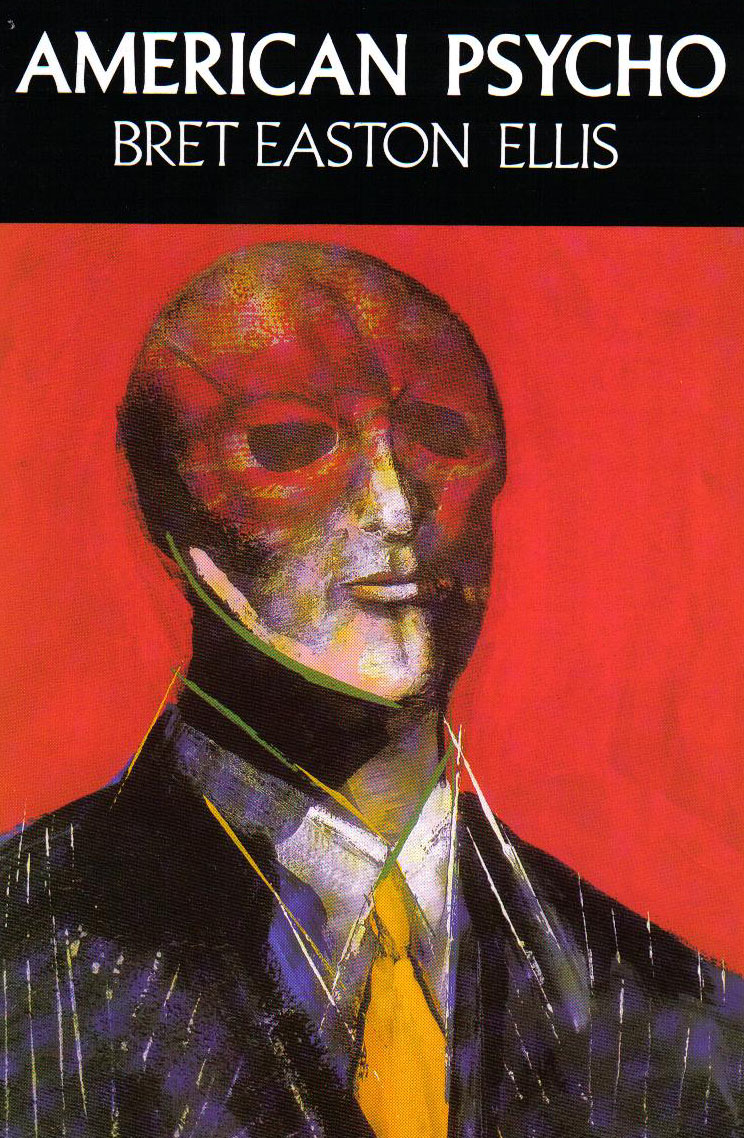American Psycho, the movie version, is one of my favorite horror flicks. It's a violent, dark comedy that both disturbs and entertains me. Going into the novel, I expected I would love the book even more than the movie, but it turns out I was wrong.“...there is an idea of a Patrick Bateman, some kind of abstraction, but there is no real me, only an entity, something illusory, and though I can hide my cold gaze and you can shake my hand and feel flesh gripping yours and maybe you can even sense our lifestyles are probably comparable: I simply am not there.” -Ellis, American Psycho
Even though I had issues with the book, Bret Easton Ellis is a brilliant writer. There are not many authors that could pull this book off. It's clear extensive research was put into the story. The details Patrick Bateman gives the readers about the appearance of every person he meets, from the brand of ties or jewelry down to the brand of shoes, make it clear, sometimes painfully so, that a ton of thought was put into every detail. However, that many details made the book muddled to read. All those designer brands blended together, and even though I skimmed or skipped over many of those parts (and many of the side chapters that analyzed 80s music), it still seemed to take awhile for me to get through the book. I wanted more of Bateman's story, and it seemed to take awhile to really come together.
However, I will say Ellis obviously has a point to all those details. They serve to further prove the idea of materialism being so dominant in the book, especially given Bateman's job and Wall Street life, but I could have gotten that point just as clearly without the superfluous amount of detail. Bateman is a creepy bastard, and Ellis writes that aspect with careful cleverness, but even by the end of the book I was still unsure of how I really felt about Bateman's story.
In the movie version, while the violence toward women is disturbing, we are led to believe everything that happened had only occurred in Bateman's head, or at least that was how I always interpreted the part where Jean finds Bateman's appointment book filled with the graphic drawings of murder and other unpleasant things. The book, however, seemed to leave that idea open to even more interpretation. And the violence is so much worse. I'm usually not one to mind graphic gore so much, but there was something about the (again) over abundance of details for the horrific deaths of all the women that unsettled me. In a way I can see how Bateman's apparent murders of the women furthered the overarching theme, but sometimes it was just too much. Yes, I get the point that Bateman thinks of women as disposable possessions, just like his material items, but I didn't need quite that many details of what he did to their bodies to drive the point home.
Either way, the whole thing is disturbing as hell, so if overly graphic gore stuck in stream of consciousness narration is your thing, then this just might be your cup of tea. The dropped in mentions of Tom Cruise and Donald Trump interested me. Bateman is almost like the lovechild of the two with his movie star good looks, selfishness, and taste for the overly expensive business-centered life. Also, the fact that he worries so much about his health and tan, yet he drinks and does drugs excessively. Ellis is a strong writer, but I just couldn't get into the written story as much as I have with the movie version, which is an unusual thing for me. There are definitely some great quotes throughout this book though.
“I felt lethal, on the verge of frenzy. My nightly bloodlust overflowed into my days and I had to leave the city. My mask of sanity was a victim of impending slippage. This was the bone season for me and I needed a vacation.” -Ellis, American Psycho
Either way, rock n' roll. I have to return some videotapes.

Sara –
ReplyDeleteYou hit the nail on the head when you mentioned the materialism prevalent in Ellis’ American Psycho. It’s all over the book, either as an element of character building or as an allegory for a cultural poison the author wanted to address.
Strangely enough, and when I look at the book as an allegorical argument against some cultural trauma the author has spotlighted, American Psycho reminds me of Bradbury’s Fahrenheit 451. In that book, author Bradbury prophesied the arrival of “reality TV” (ala Keeping up with the Kardashians) and Ellis foresaw not only the chaos of the 90s and beyond as a result of the chaos and egocentricity of the 80s.
I look at Bateman and see what you see, “his movie star good looks, selfishness, and taste for the overly expensive business-centered life. Also, the fact that he worries so much about his health and tan.” All of that is bad, especially when we see the consequences of this sort of narcissistic madness laid out for all of us to deal with.